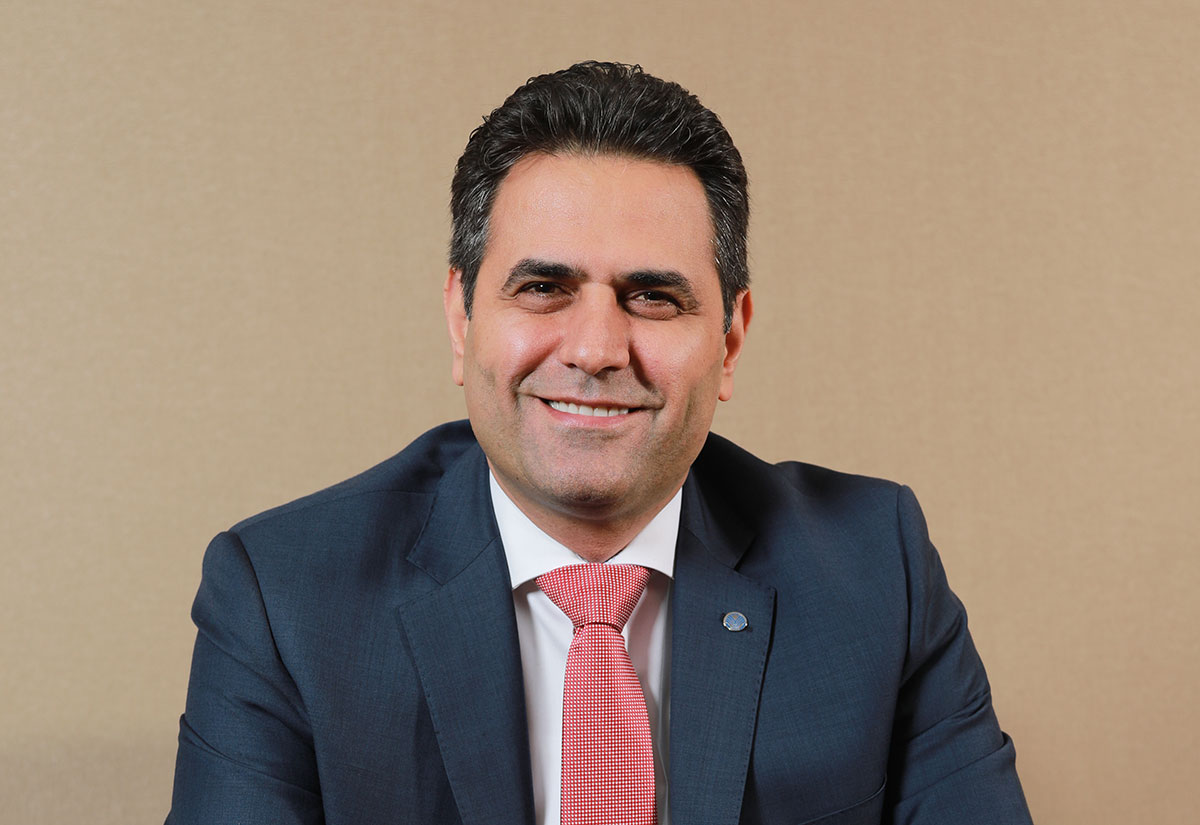“The hotel] offers guests convenience and comfort in the heart of downtown Baghdad with extensive measures implemented to make it the most secure hotel in the downtown Baghdad area,” he says.
“We are looking at a diversified and an optimal business mix that will enable us to drive revenues,” he adds. “Our main target market is Iraq, followed by Lebanon and Jordan. The majority of our business is from corporate clients and companies operating in Baghdad.”
Fifty percent of guests are NGOs, 30% corporate, 10% MICE and 10% leisure reveals Haj Hassan.
“We are seeing a new market segment in terms of guests, which is honeymooners from the domestic market. They travel to Baghadad from different parts of the country, ‘ he says.
In terms of foreign leisure guests staying at the hotel, Hassan revealed that “famous” singers from Lebanon, such as Fares Karam, have been booking rooms at the hotel. “They play concerts in Baghdad” he adds.
Haj Hassan describes how the market [in Iraq] has been witnessing extremely positive trends. He says that overall in Iraq, that Rotana hotels have been “performing well with positive results that have benefitted from stable market conditions in the country.
For the Babylon Rotana Baghdad, Haj Hassan says that the strategy includes driving business across all verticals, which, he says, will provide a steady mix of the various segments. “Depending on the market conditions, next year we are aiming to achieve an average room rate of more than USD $225 with an average occupancy of 90%,” he adds.
That Iraq is still an emerging market, means challenges exist for all industry sectors, including hotels.
“Guest amenities such as shampoo and soap are not available locally and have to be imported via Jordan,” he says. “The majority are from Dubai and Turkey. It’s the same for service operating equipment. There are no showrooms here Iraq]. Most is imported from Dubai.”
Importing supplies has an effect on hotel budgets. “We import 80-85% of the foodstuff needed for the hotel, such as margarine, Danish pastries, flour. This increases costs. In a normal environment, food costs would be 18-20% but at the hotel it is 30%,” he says.
Haj Hassan describes how having to helping import much of the hotel’s food can lead to a lack of consistency. “Sometimes, it is available and other times it is not,” he says, pointing out that since the hotel maintains large quantities of the stock, guests are unaffected by it.
Hiring experienced and qualified staff who have a background in hotel s is also challenging, espeically at a five star level.
“Iraq is not an attractive destination for skilled foreign labour, as they prefer safer destinations,” says Haj Hassan.
“In order to attract [such talents] cost plays a big role since you have to pay 25% to 30% above the market rate. There is also the cost of insurance, which for exapts is quite high,” he says.
“The hotel does hire locally but you need to train them, since they are fresh graduates.”

| Advertisement |









 Search our database of more than 2,700 industry companies
Search our database of more than 2,700 industry companies









